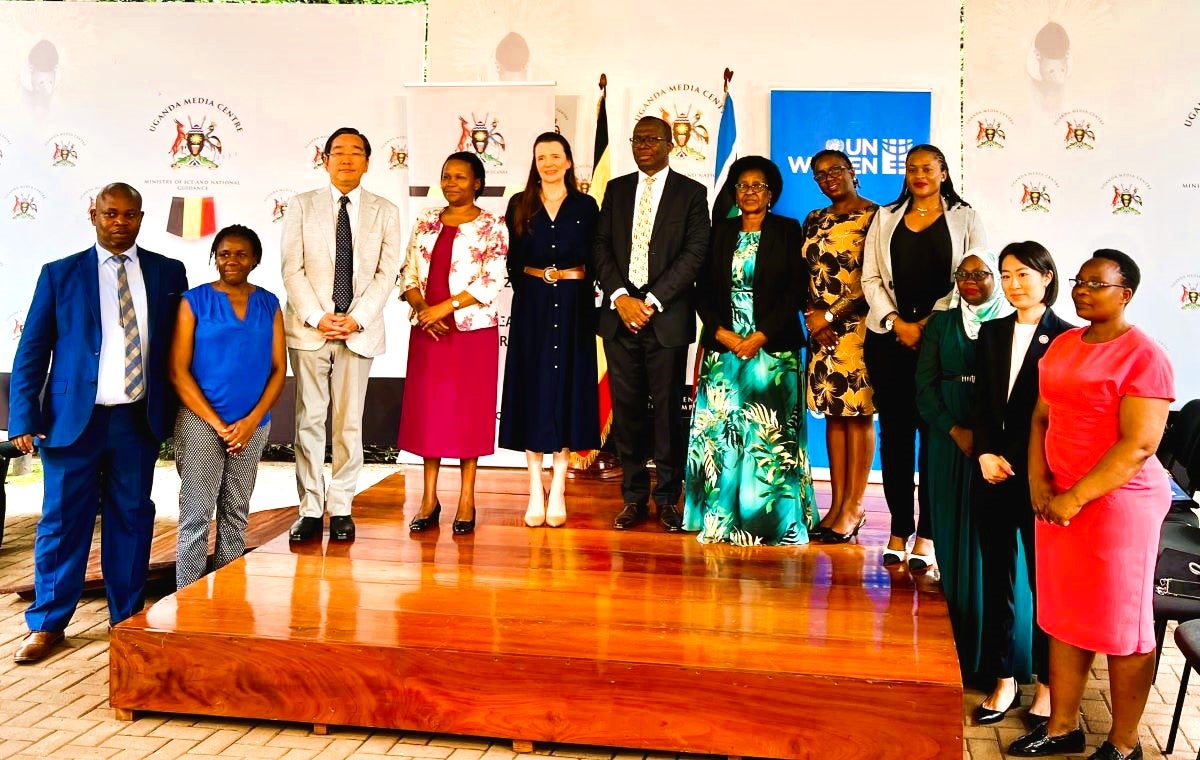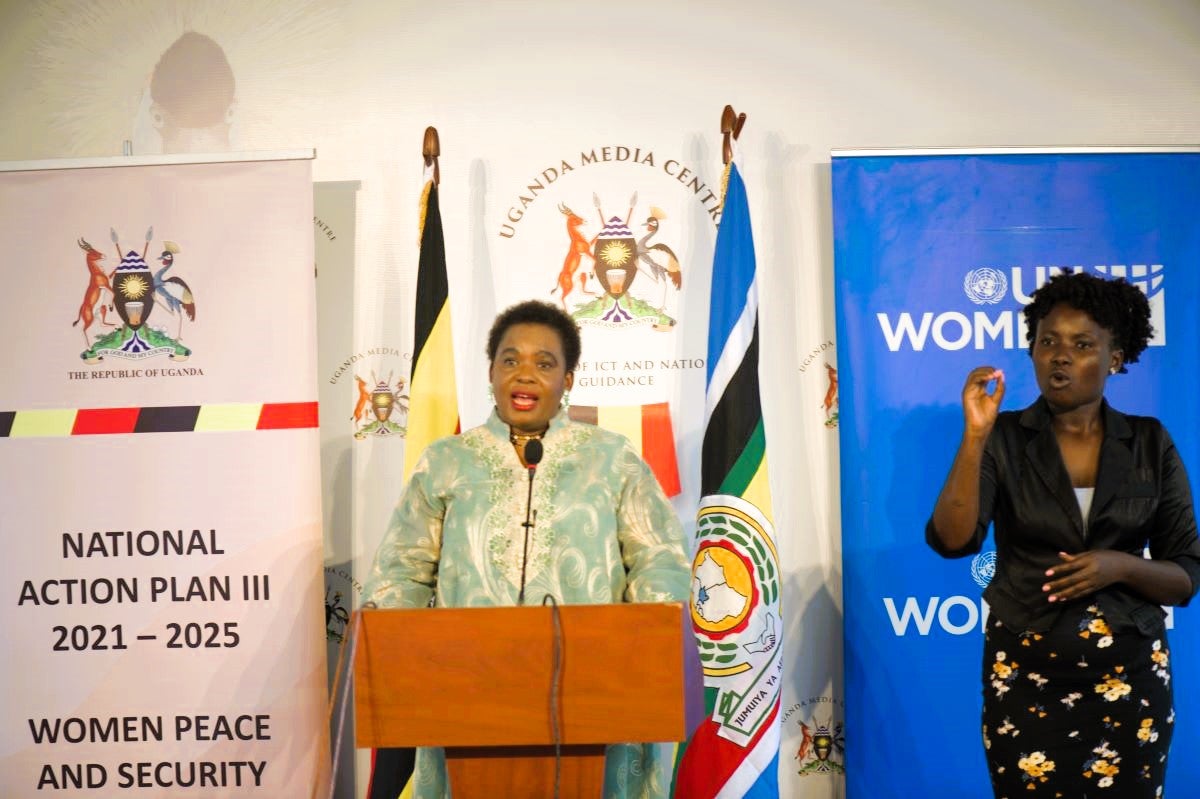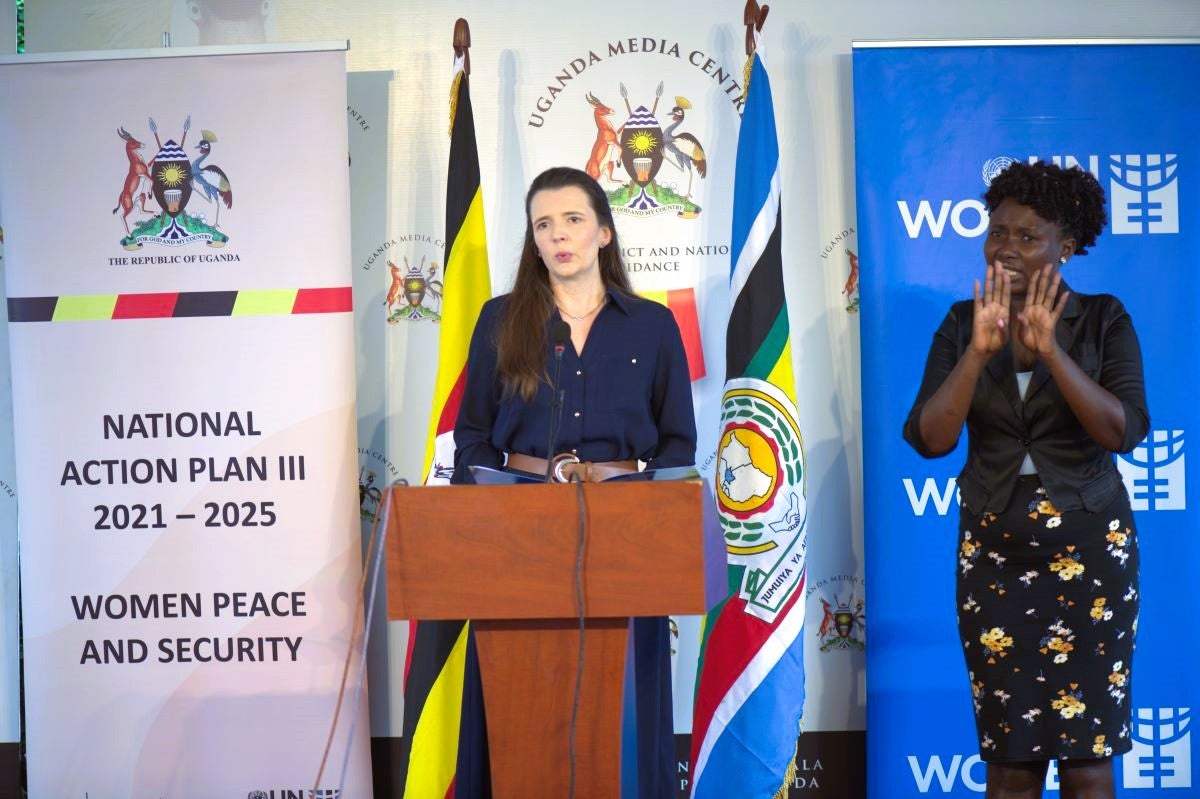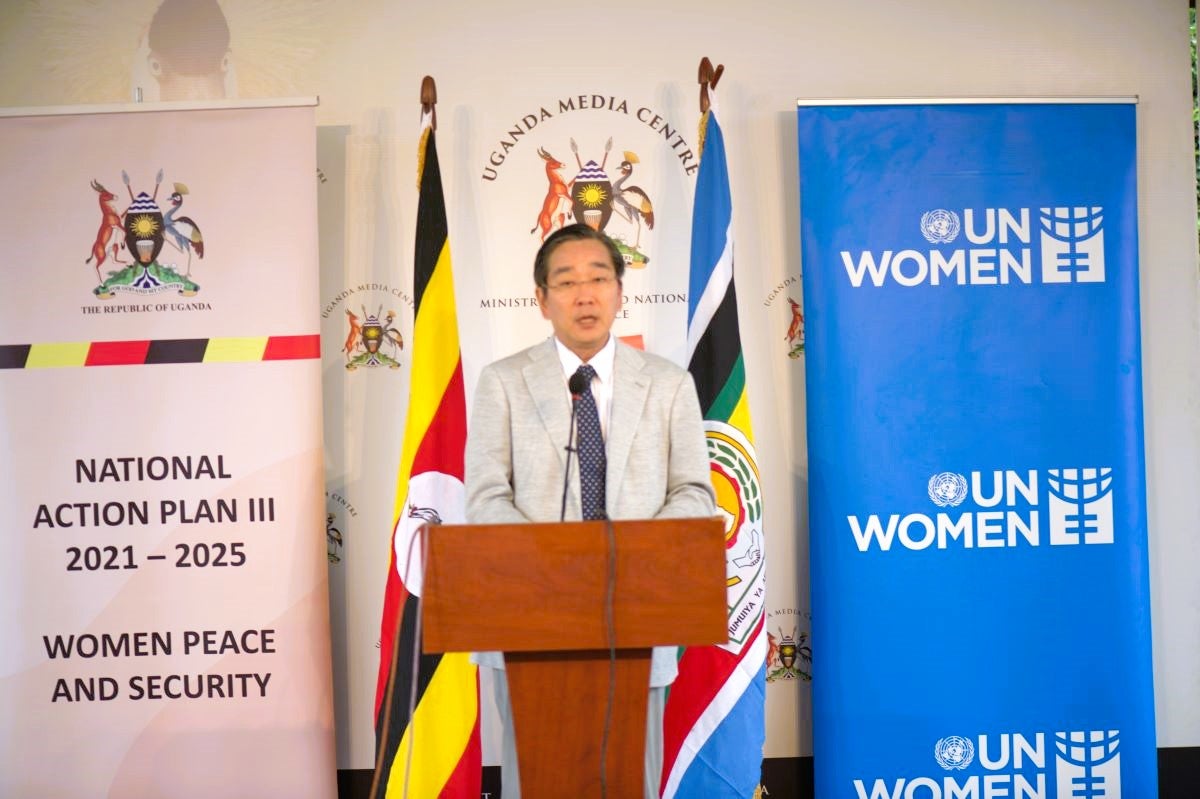UN Women Uganda joins partners in commemorating the 24th UN Security Council Resolution 1325 on Women, Peace and Security
Date:

On 31st October 2024, UN Women Uganda joined partners in commemorating the 24th anniversary of the United Nations Security Council Resolution 1325 on Women, Peace, and Security (UNSCR1325). The event took place at the Uganda Media Center in Kampala and highlighted the importance of advancing the Women, Peace, and Security agenda.
The commemoration was officiated by Honorable Betty Amongi, Minister of Gender, Labour, and Social Development, and featured distinguished guests including Crentsil Matthew, the UNHCR Country Representative in Uganda, and Sasayama Takuya, the Ambassador of Japan to Uganda.
The UNSCR 1325 was unanimously adopted on October 31, 2000, marking the first recognition of gender dimensions in armed conflict. This landmark resolution included commitments to prevent sexual and gender-based violence, protect women and girls, and address other critical issues.
The resolution included commitments to the prevention of sexual and gender-based violence, the protection of women and girls and their unique needs in conflict settings, participation of women in conflict, resolution and peacebuilding.

"Uganda was among the first African nations to develop a National Action Plan on the United Nations Security Council Resolution 1325. We are proud to champion women’s voices in peacebuilding. With 15 district plans and the ongoing implementation of National Action Plan III, we are advancing the Women, Peace, and Security agenda in communities most affected by conflict," Hon. Betty Amongi said in her speech.
Among stated that during conflicts, women, girls, and children suffer the most, as men often use armed conflict as a means to perpetrate rape, defilement, and other forms of sexual abuse, contributing to gender-based violence against women and girls.
“Uganda has adopted the UN Resolution to ensure its effective implementation and to protect women and girls during times of conflict. We are actively mobilizing stakeholders to prevent a return to armed conflict, as we now fully understand its consequences,” she said.

Natasha Butorac, UN Women’s Programme Specialist on Women, Peace and Security, who represented Dr. Paulina Chiwangu, the Uganda Country Representative, said 73% of Uganda’s youth are under 30, and that engaging them in peace and security is vital.
“UN Women is currently empowering young voices for a peaceful future per United Nations Security Council Resolution 2250. Through Civil Society Organisations and Local Government partnerships, we are expanding the Women Peace and Security programme to 14 more districts, supporting women mediators & local peacebuilders,” Natasha said.
Speaking at the same function, Matthew Crentsil, UNHCR country representative, said there is enough evidence to show that whenever there is conflict, women and children suffer the most.
“Out of the 1.8m refugees in Uganda today, 79% are women and children. This makes Women Peace and security agenda more important. While water scarcity has immediate impact, gender-based violence has long-lasting effects. I urge men to spring into action and advocate for the rights of women,” he said.

Takuya Ssasayama, Japan’s ambassador to Uganda reiterated his country’s commitment on supporting the women, peace and security agenda.
“We continue to invest in different projects in Uganda which include a 3.2m$ project implemented by UN Women in Uganda in refugee hosting districts. In 2025, Japan and Norway, will also serve as co-chairs of the WPS Focal Points Network. This we believe will strengthen our partnership with different stakeholders in addressing the women, peace and security situation in the country,” he said.
Norway, a key partner of UN Women on Women, Peace, and Security, reaffirmed its commitment to this agenda through a statement by Ambassador-designate H.E. Tone Tinnes. She highlighted that the partnership with UN Women in Uganda plays a crucial role in supporting Uganda’s National Action Plan on Women, Peace, and Security, which empowers women and girls to lead in building sustainable peace and resilience.
“Together we have achieved critical milestones. UN women’s initiatives have increased women’s representation on peace committees and strengthened local action plans. I am especially proud of programmes that train district leaders and Women’s Rights Organisations in preventing violent extremism and equip women’s savings groups with renewable energy knowledge, diversifying income sources and preventing crises,” Tinnes said.